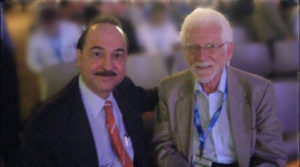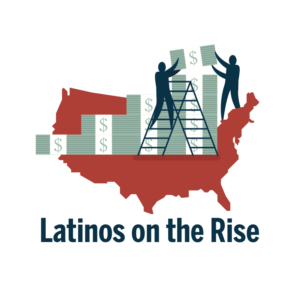Innovation and entrepreneurship are key components for people and organizations to grow and prosper in today’s highly competitive environment.
In step with innovation
On April 3, 1973, around the time I was a getting a mechanical engineering degree at Florida Atlantic University (FAU), Marty Cooper, a Motorola engineer, made the first cellular call using a hand-built prototype cell phone consisting of more than 1,000 parts.
 Cooper’s work paved the way for the first commercial cellular call on Oct. 13, 1983, in Chicago, IL, not far from the NIU campus where I earned my MBA. The phone used was the Motorola DynaTAC, which cost $3,995.
Cooper’s work paved the way for the first commercial cellular call on Oct. 13, 1983, in Chicago, IL, not far from the NIU campus where I earned my MBA. The phone used was the Motorola DynaTAC, which cost $3,995.
It took an additional 10 years of innovation and entrepreneurship to develop affordable commercial cell phones, reliable network infrastructures, and sustainable business models to eventually deliver commercial cellular services.
Cooper’s work resulted in the birth of one of the most innovative and entrepreneurial industries in the world. An industry that changed how we live, work, and play.
Little did I know at that time that one day I would be able to play a leading role in that new industry. Even less did I suspect that 30 years later Cooper would attend my induction into the Wireless Hall of Fame, whose roster includes Cooper himself (pictured above).
Two things made it possible for me to succeed in an industry that did not exist when I was at NIU but in which I would eventually become the CEO of AT&T Mobility.
The first was the solid education that I got both at FAU and NIU.
The other was a determined commitment to lifelong learning at the speed of change.
So the challenge I posed to the NIU students is the same that I now pose to LinkedIn readers: How do you prepare to work and to lead in an industry that does not yet exist?
The way I see it, you first have to get a good education. But, more than anything else, you have to learn how to learn, and then continue learning your entire life. You must stay current and be able to adapt in order to seize the opportunities that are going to be presented to you.
In my case, the opportunities that I was able to seize included working with some of the world’s best entrepreneurs in delivering innovations that literally changed our lives in the last 10-or-so years.
Entrepreneurial spirit
In my remarks I also talked about the importance of entrepreneurship in lifting people out of poverty by teaching young people to create jobs instead of just filling one.
That is one of the things that Junior Achievement Worldwide teaches to more than 10-million kids a year in over 100 countries, thanks to the selfless collaboration of more than 470,000 volunteers and mentors. Those are huge numbers and their work is life-changing, which is why I’ve been a strong supporter of the organization for years, including having served as its chairman.
However, in my view the entrepreneurial spirit is not limited to starting one’s business. It can flourish almost anywhere.
In my case, I was able to foster an entrepreneurial approach within a very large corporation by creating and supporting small, agile groups that, in a start-up approach, were able to bring innovations to market quickly. I’m talking about connected devices, the connected car, and many of the things we now call the Internet of Things.
Who’s the next Marty Cooper?
How many Marty Coopers are out there today essentially reinventing how we communicate, how we live, work, and play?
Over the past decade we have seen a few, and we’ve seen our lives change, for the better I think, thanks to their innovativeness and entrepreneurship. My bet is that those life-changing innovations are going to accelerate.
A December 2017 McKinsey Global Institute study estimates that anywhere between 75 million and 375 million workers (3% to 14% percent of the total global workforce) will need to switch occupational categories by 2030 as automation technologies like artificial intelligence and robotics replace jobs, create new ones, and significantly impact many existing ones.
So the question is: How do we prepare our kids, our college students, our employees and, in fact, ourselves for the time when those industries begin to have a significant impact?
We do that by grounding ourselves with a solid education and by committing ourselves to learning constantly so we are able to take advantage of all the opportunities that will ensue as a result of the innovations that today’s Marty Coopers are working on now.
We also need to rethink how we train and educate our future work force so they are not obsolete by the time they graduate from school.
One of the skills we need to embed in our future work force is how to be self-efficient at adapting to change. We need to train our young people at an early age to constantly learn so they can deal with the accelerated rate of change they will experience in their lives.
The schools that succeed in preparing tomorrow’s leaders are those that to show a self-development path between what their students learn today and the job market of the future.
A future that, in my view, holds unprecedented opportunities.



